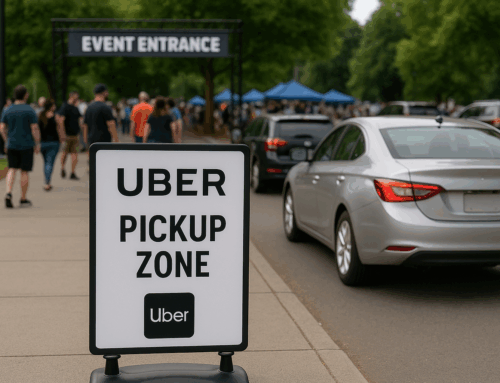Covid-19 Event Cancellations: 3 Major Takeaways from Running USA’s March 17th Emergency Virtual Race Camp on Crisis Management
In response to the Covid-19 pandemic, Running USA CEO Rich Harshbarger hosted an emergency Virtual Race Camp on Crisis Management. He facilitated the discussion along with Executive Director of Run Calgary Kristen Fleming and CEO of TimingHQ Mike Coleman.
While we covered a ton of ground on the call, I want to highlight three time-sensitive takeaways for our event management companies. These are: the need to clarify important aspects of event cancellation insurance policies, guidance on messaging strategy for cancellations and postponements, and information on how cancelled/postponed races are dealing with runner registrations.
Click here for more information about EventHub.
1. For event management companies: event insurance policy probably DOES NOT cover cancellation due to the Covid-19 pandemic.
According to the call, many organizers facing cancellation are surprised to learn their Covid-19-related event cancellation is not covered by insurance. To better understand under what circumstances a Covid-19-related event cancellation would be covered by an event’s insurance policy, I reached out directly to the experts. Our friends at Kaliff Insurance — who specialize in coverage for live events — were able to help clarify.
“Communicable disease coverage (under which Covid-19 would fall) is an option that most people opt out of when purchasing an event cancellation policy; they primarily purchase for Adverse Weather, which is an entirely separate policy to an event’s General Liability.”
– David Olivares, VP Sales and Marketing, Kaliff Insurance.
Covid-19 is currently an excluded from available event cancellation policies. This is important if your event is still on track to happen later this year. It means you are not currently able to purchase insurance coverage against cancellation due to Covid-19. However, you should still purchase cancellation insurance against inclement weather and should consider other options such as threat and act of terrorism.
2. Message framing and ‘small-bites’ updates are key.
Kirsten discussed how some of the first events to cancel due to Covid-19 did not present clear messaging to their runner community, which resulted in a harsh online backlash for many of these event management companies. The most effective messaging includes expressing sympathy for your runners, volunteers, and partners; explaining how you will make the best of a bad situation; and providing clear options for runner registrations.
As an example of how to do this correctly, I would point to our customer, Dick’s Sporting Goods Pittsburgh Marathon. They made the announcement of their 2020 race cancellation yesterday via Facebook video post. In the post, CEO Troy Schooley speaks directly to their key stakeholders. His empathy for the community and determination to do right by their runners, volunteers, and partners, is very apparent and authentic.
Kirsten also highlighted that sending out small, easily-digestible updates early and often is a better way to communicate versus a huge data dump. Short burst updates will lead to more awareness, better clarity, and stronger support from stakeholders. They will feel more in-the-loop and that you are in it together with them. You should also convey to runners how their registration money is invested along the way. Dispel the myth that their money is not just sitting in an account. Here is a great article from Race Director Ryan Heisler on the topic.
3. Know your options for handling cancelled event registrations.
Many of yesterday’s attendees chimed in with helpful information related to Covid-19 event cancellations. One of these participants was Active Network’s Toby Green, VP of Product Management – Endurance Market. Toby shared Active Network’s customer data for cancelled races: As of 1:30pm PDT on March 17th, 33% of races are offering refunds, 24% are offering refunds or deferrals, 30% are still TBD. Only 13% are not offering refunds.
Two important notes on virtual participation and deferrals:
- If you choose to offer virtual participation as an option for your runners, do not assume they will know what that is. Clearly educate them on the experience and how it works.
- Races are offering registration deferrals for one to three subsequent years of the runner’s choosing. A high volume of deferred runners do not show up for their future race date, so capping subsequent year registrations one-to-one based on deferral counts is not recommended.
Conclusion
Covid-19 event cancellations are a fluid situation as new government actions are taken daily. Continue to make the best decisions you can based on the information currently available to you. Whatever the 2020 status of your events, and whenever their next occurrence falls on the calendar, there are steps you can take. Be familiar with your insurance policy and add protections if needed. Communicate with stakeholders frequently and in short bursts. Have participant options outlined ahead of time for registrations in the event of a cancellation or postponement. Good luck, follow CDC guidelines, and stay safe.







